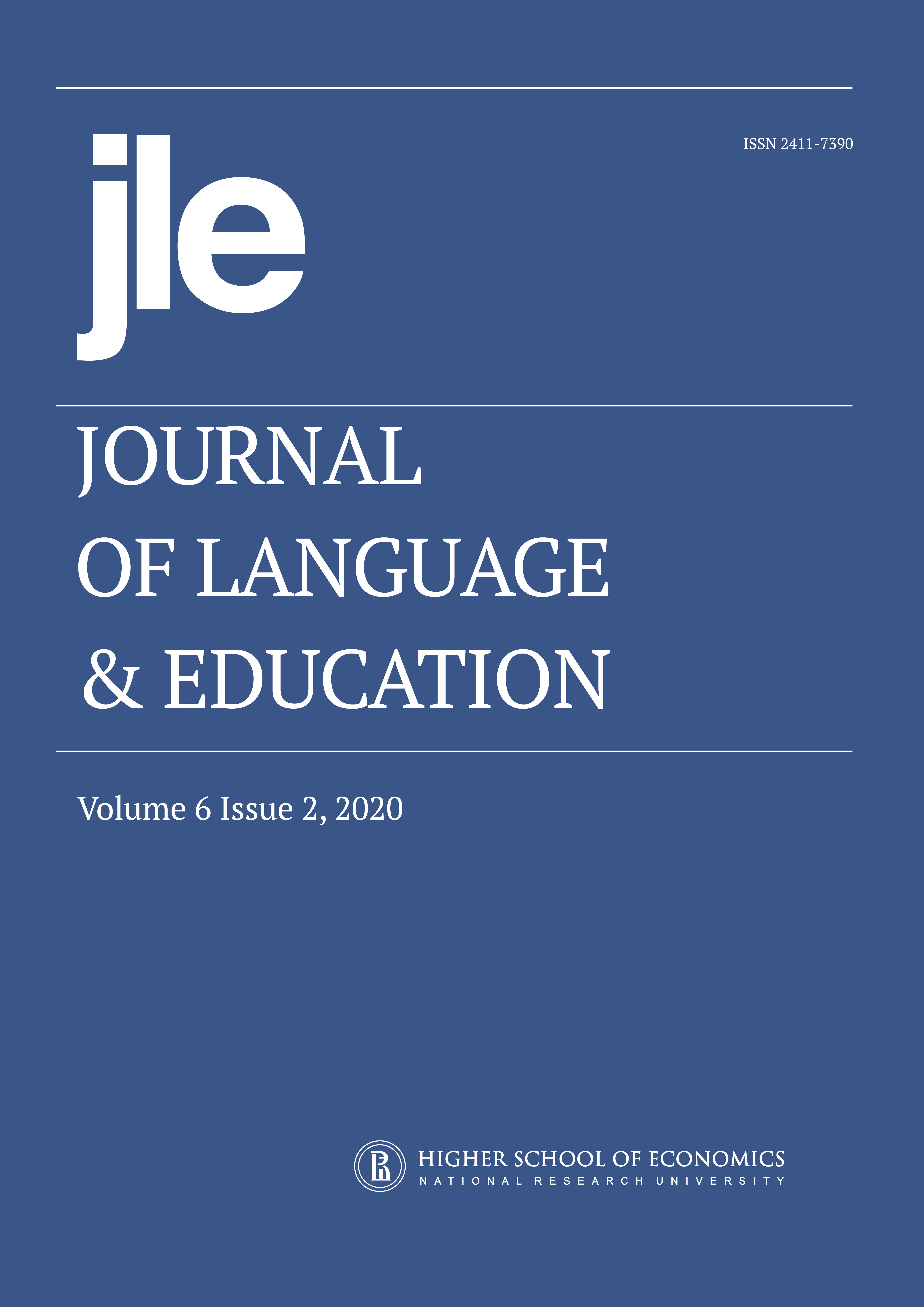Teacher-research: Agency of Practical Knowledge and Professional Development
Abstract
Educational research has generally attracted negative criticisms for its generalisability, contextual independence and inadequacy in addressing teachers’ practical problems in their own educational settings. Moreover, as classrooms are always complicated, teachers are therefore encouraged to become active researchers of their own classrooms in order to maximize their instructional performance and provide optimal learning opportunities for their students within their particular context. To promote teachers’ self-inquiry into their own practices, this paper will first define what teacher research is, followed by the arguments for its need and significance in the teaching profession. Suggestions to help teachers become engaged into classroom inquiry are provided after difficulties commonly reported to be encountered by teacher-researchers are reviewed. This paper is expected to provide some considerable insights for classroom-teachers as well as school administrators in their search for practical, concrete and contextually-rich knowledge.
Downloads
References
Alexakos, K. (2015). Being a teacher | researcher: A primer on doing authentic inquiry research on teaching and learning. Sense.
Anwaruddin, S. M. (2019). Knowledge mobilization in TESOL: Connecting research and practice. Brill.
Borg, S. (2009). English language teachers' conceptions of research. Applied Linguistics, 30(3), 358-388.
Borko, H., Liston, D., & Whitcomb, J. (2007). Genres of empirical research in teacher education. Journal of Teacher Education, 58(1), 3-11.
Cain, T., & Allan, D. (2017). The invisible impact of educational research. Oxford Review of Education, 43(6), 718-732. DOI: https://doi.org/10.1080/03054985.2017.1316252
Cochran-Smith, M. (2012). A tale of two teachers: Learning to teach over time. Kappa Delta Pi Record, 48(3), 108-122. DOI: https://doi.org/10.1080/00228958.2012.707501
Cochran-Smith, M., & Lytle, S. L. (1999). Relationships of knowledge and practice: Teacher learning in communities. Review of Research in Education, 24, 249-305.
Dana, N. F., & Yendol-Silva, D. (2003). The reflective educator's guide to classroom research. Corwin Press.
Davis, S. H. (2007). Bridging the gap between research and practice: What's good, what's bad, and how can one be sure? Phi Delta Kappan, 88(8), 568-578. DOI: https://doi.org/10.1177/003172170708800804
Farrell, T. S. C. (2015). Promoting teacher reflection in second language education: A framework for TESOL professionals. Routledge.
Farrell, T. S. C. (2018). Operationalizing reflective practice in second language teacher education. Journal of Second Language Teacher Education, 1(1), 1-20.
Hiebert, J., Gallimore, R., & Stigler, J. W. (2002). A knowledge base for the teaching profession: What would it look like and how can we get one? Educational Researcher, 31(5), 3-15.
Hoong, L. Y., Chick, H. L., & Moss, J. (2007). Classroom research as teacher-researcher. The Mathematics Educator, 10(2), 1-26.
Kincheloe, J. L. (2011). The knowledges of teacher education. In K. Hayes, S. S. R., & T. K. (Eds.), Key works in critical pedagogy: Bold visions in educational research. Sense.
Kostiainen, E., Ukskoski, T., Ruohotie-Lyhty, M., Kauppinen, M., Kainulainen, J., & Mäkinen, T. (2018). Meaningful learning in teacher education. Teaching and Teacher Education, 71, 66-77. DOI: https://doi.org/10.1016/j.tate.2017.12.009
Liu, P., & Xiu, Q. (2019). Teacher professional collaboration in China: Practices and issues. Beijing International Review of Education, 1, 162-178. DOI: https://doi.org/10.1163/25902547-00101012
Loughran, J. J. (2002). Effective reflective practice: In search of meaning in learning about teaching. Journal of Teacher Education, 53(1), 33-43. DOI: https://doi.org/10.1177/0022487102053001004
Mathew, P., Mathew, P., & Peechattu, P. J. (2017). Reflective practice: A means to teacher development. Asia Pacific Journal of Contemporary Education and Communication Technology, 3(1), 126-131.
Medgyes, P. (2017). The (ir) relevance of academic research for the language teacher. English Language Teaching Journal, 71(4), 491 - 498. DOI: https://doi.org/10.1093/elt/ccx034
Mermelstein, A. D. (2018). Reflective teaching as a form of professional development. MEXTESOL Journal, 42(4), 1-14.
Miller, M. S., & Shinas, V. H. (2019). Inquiring about inquiry: A research journey. Journal of Practitioner Research, 4(1), 1-24. DOI: https://doi.org/10.5038/2379-9951.4.1.1093
Mills, G. (2000). Action research: A guide for the teacher researcher. Merrill/Prentice-Hall.
Renandya, W. A., & Floris, F. D. (2018). Supporting teacher research in English language teaching. ETAS Journal, 35(3), 1-2.
Loewen S., Sato M. (2019) Instructed second language acquisition and English language teaching: Theory, research, and pedagogy. In X. Gao (Ed.) Second handbook of English language teaching. Springer International Handbooks of Education. Springer. DOI: https://doi.org/10.1007/978-3-319-58542-0_60-1
Schön, D. A. (1983). The reflective practitioner: How professionals think in action. Basic Books.
Schön, D. A. (1987). Educating the reflective practitioner: Toward a new design for teaching and learning in the profession. Jossey-Bass.
Schutz, K. M., & Hoffman, J. V. (2017). I Practice Teaching: Transforming our professional identities as literacy teachers through action research. The Reading Teacher, 71(1), 7-12. DOI: https://doi.org/10.1002/trtr.1592
Stremmel, A. J. (2007). The value of teacher research: Nurturing professional and personal growth through inquiry. Voices of Practitioners, 2(3), 1-9.
Stringer, E. T. (2007). Action research (3rd ed.). Sage.
Vangrieken, K., Meredith, C., & Kyndt, E. (2017). Teacher communities as a context for professional development: A systematic review. Teacher and Teacher Education, 61, 47-59. DOI: https://doi.org/10.1016/j.tate.2016.10.001
Vaughan, M., & Burnaford, G. (2016). Action research in graduate teacher education: A review of the literature 2000-2015. Educational Action Research, 24(2), 280-299. DOI: https://doi.org/10.1080/09650792.2015.1062408
Walton, E., & Rusznyak, L. (2016). Approaches to assessing preservice teachers' learning in authentic and rigorous ways: The case of an inclusive education module. Perspectives in Education, 34(1), 84-101. DOI: https://doi.org/10.18820/2519593X/pie.v34i1.7
Wiliam, D. (2019). Teaching not a research-based profession. https://www.tes.com/news/dylan-wiliam-teaching-not-research-based-profession.
Copyright (c) 2020 National Research University Higher School of Economics

This work is licensed under a Creative Commons Attribution 4.0 International License.
Authors who publish with this journal agree to the Copyright Notice.



